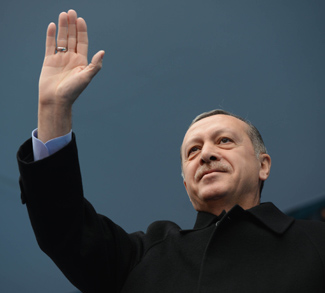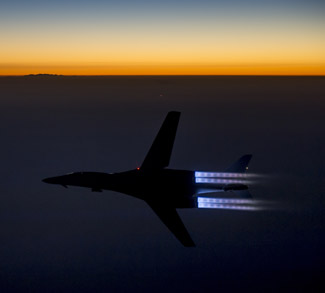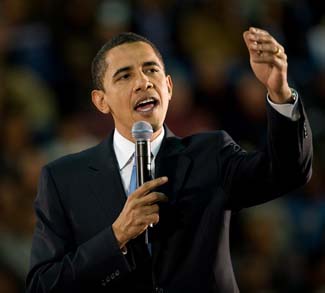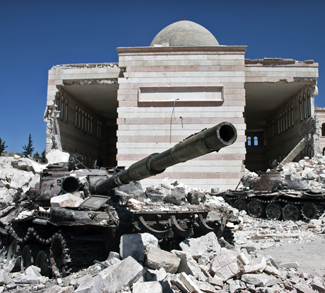Turkey’s geopolitics is increasingly at the center of attention after the failed coup of July 2016. The era of Kamalism, with the army as “guardian of secularism” has ended. The AKP and its revered chief Erdogan are free as never before to go ahead in their ideological project of pushing Turkey’s society toward its Islamic roots. In this short article we will try to explain in a comprehensive and organic way the geopolitical turmoil in Turkey using the analysis of the “clash of civilizations” from Samuel Huntington.
It appears that the framework suggested by Huntington can explain what is happening in Turkey nowadays, from the ascension of AK party, to the spread of anti-western sentiments among Turkish people, as well as the ambiguous role of Turkey in the Syrian civil war. Furthermore, exploring the remaking of the world order predicted by the eminent Harvard professor can enable us to make plausible scenarios for the future.
The main message coming from the clash of civilizations is that, in the post-Cold War era, the world will shift from bipolar (US vs USSR) to multipolar international relationships and nations will organize their relations according to their cultural ties. In this setting, the fall of the Soviet Empire announces the end of the “ideological wars “and a shift to a normal state of affairs characterized by cultural conflicts. Huntington describes eight major civilizations and he forecasts inter civilizational conflicts along their civilizational lines, while other kind of struggles can emerge inside a civilization itself in order to gain the supremacy over it.
In chapter three of his book a special paragraph concerns Turkey, which, from its historical role in the region as well as its unique geographic situation is a natural bridge between two continents and two civilizations. Translated into the Huntington vocabulary, we could say the Turkey is greatest example of a civilization fault line. Turkey is a nation-state historically engaged in a civilization conflict with two external civilizations (the Christian West and the Orthodox-Russia East) as well as an important participant in the internal struggle for supremacy inside the Islamic civilization, both in the context of Sunni vs Shiite, and within the Sunni bloc.
During the Cold War, Turkey joined the West’s alliance, enjoying financial aid and the military technologies of NATO. The laicism of the nation in the ideological line of Kemalism, and the hope of joining the European Union, created good relations between the West and Turkey. Furthermore, the US was pushing for the integration of Turkey into the European Union to try and make the border of the EU identical to that of NATO. In this context, Turkey served as a shield between the West and Russia, both in the southeast of the Mediterranean and in the Black Sea.
With the end of the Cold War, ambitions from the past started to arise and all the ingredients for a perfect storm have been converging to fuel Islamic populism: A small, rich, secular and well-educated elite versus a mass of religious-oriented people. A regime of laicism imposed by the state against a sharp and well-spread religious sentiment, supported by the lower classes of society. The fall in disgrace of a great empire and a sort of vexation to be part of an alliance which is perceived as a Christian club supporting Israel against the Muslims in Palestine and that, after all, seems to reject the idea of Turkey entering in the European Union. All this dissatisfaction has been canalized in a sort of “geopolitics of emotions” as a vector for gaining consensus by galvanizing the masses and supporting the resurgence pride for the ancient glory of Turkish Ottoman Empire in what has been defined as “New Ottomanism.”
The predictions of the clash of civilizations finds are realized in the case of Turkey, which has gradually started to shift its geopolitics, using religious factors as a principal component of its strategy. The rhetoric used against Israel, the call for Muslim union, the construction of hundreds of mosques, the scene in which Erdogan himself appears praying in the mosque, the use of the Quran, even in public meetings of the AKP… the modus operandi of Erdogan is quite simple: “Islamic populism.” The message is still the same, from the Balkans, supporting the myth of great Albania, to Somalia, where Turkish airlines have put into place a stable airline connection, from Kosovo to Uzbekistan – all in order to create a new Turkish sphere of influence.
It would appear that Erdogan and Turkey are acting against the interests of the West, with Turkey using the migrant crisis as tool to pressure the European Union.
In this context and in order to push forward the rhetoric of the “Strong Turkey” as a Muslim leader and defender, a natural particular target has been Israel, the US’ greatest ally in the region. The “Mavi Marmara” case is of course the apex of this “Islamist propaganda,” and the attack on the Israel embassy in Ankara on the 21 September 2016 should come as no surprise. In this case, the assailant has been defined as “crazy’’ by the authorities in Ankara, but the “crazy” thing seems to be the message he cried out before the attack: “We will make justice in the Middle East,” which sounds like he is repeating Erdogan’s message.
Step by step, Turkish foreign policy has gradually shifted from “zero problems with neighbors” to “Neo-Ottomanism,” and more divergence between Turkey’s interests and the West’s interest have been developing in recent years. We have already mentioned “the strain” with Israel, pushing the latter to create a geopolitical bloc with Bulgaria, Cyprus, and Greece in order to contain Turkish ambition in the region.
But of course we should also notice the divergence in positions between Turkey and the West during the Arab Spring. Concerning Egypt, we can see clearly the two opposing positions with the West supporting Al-Sisi and Erdogan pushing for Morsi and the Muslim Brotherhood.
Finally, the divergence in the Syrian civil war, with the US supporting Kurdish rebels that Turkey considers to be more dangerous then Islamic State, and all of the many doubts and dark areas that remain in Turkey-ISIS relations.
After such considerations, it appears totally logical, the accusation of Erdogan against the US after the July coup. It would appear that Erdogan and Turkey are acting against the interests of the West, with Turkey using the migrant crisis as tool to pressure the European Union. Now President Erdogan can also try to use the failed coup as final proof of US conspiracy against himself, the Turkish people, and Islam.
The main questions here are: Could this turmoil have be prevented? And what happens next?
Following the Huntington thesis of clash of civilizations, it’s clear the West’s effort to peg Turkey in the Western civilization has failed. Turkey is orienting its geopolitics to the East, trying to establish a Turkish area of influence from Kosovo to Egypt through Somalia and Central Asia; it presents itself as a guide for all Turkish nations and a defender of Muslim civilization. The shift away from the Western bloc also coincides with a shift from Western democracy: The Gezi park protests, the accusations of antisemitism, the silencing of the press, the changes to the constitution, the presidential palace construction, the nomination of Erdogan’s son-in-law as minister of oil, and the intimidation of the Constitutional Court – these are all signals of the rise of a “one-man state.”
If, during the Balkans wars, Turkey was a reliable partner, this was due to the fact that NATO was supporting Muslim minorities against a Russian ally in the region, as Huntington himself pointed out in his essay. In the Syrian civil war, the divergence between the West and Turkey has finally become visible. If at the beginning, the US and Erdogan had the same main objective to eliminate Russia influence in the region as well as weaken Iran’s position in Middle East, the situation has gradually changed, and the threat of Islamic State has become more important for Western civilization, which has helped to make the Kurdish forces the most important US ally in the war. Turkey refuses to accept his secondary role inside the West and behind its core state, the US. Erdogan has not hesitated to move closer to Russia and make a “secret deal” with Putin; after Syrian and Russian authorities expressed concern about Syrian ethnic divisions, Turkey launched the offensive “Euphrates shield” with the main objective to stop the Kurdish militias.
The final lesson we can learn from these events is about the limits of globalization and the failure of the soft power policy of some progressive American analysts concerning the West’s policy toward Turkey. In particular, under the Obama presidency, the goal was to demonstrate that it is possible to avoid a clash of civilizations; Turkey-US relations should have proved de facto that it is possible to build an inter-civilization global community under the UN umbrella, with the US as leader of the ‘’free world.” This ambition was clearly stated by Obama himself during his first state visit to Turkey as US president in April 2009. Obama said: “I’m trying to make a statement about the importance of Turkey, not just to the United States but to the world. I think that where there’s the most promise of building stronger Turkey-US relations is in the recognition that Turkey and the United States can build a model partnership in which a predominantly Christian nation, a predominantly Muslim nation…” he then continued, “that we can create a modern international community that is respectful, that is secure, that is prosperous, that there are not tensions – inevitable tensions between cultures – which I think is extraordinarily important.”
Seven years later, we should recognize that in the case of Turkey this model of inter-civilizational partnership has failed. Huntington depicted Turkey as a torn country, between the West and Muslim civilizations, but meanwhile, under the Erdogan regime, this bipolarity has been solved and the Islamic roots have prevailed. A century ago, the Turkish empire had fallen in a brutal way; now, the dust is falling and like the phoenix, Ottoman imperialism seems to be on the rise again, supported by this AKP leader who in 1997 read some verses of Ziya Gökalp “The mosques are our barracks, and the minaret is our bayonet.” Unfortunately, the clash of the civilizations has been proven to be the right framework for understanding the current geopolitical dynamic in Turkey.
If the West needs to continue to fight for its values and ideals, it should do so without avoiding realpolitik. The West needs to realize the limit of its globalization and recognize that its democratic values and humanism comes from its Christian heritage – it cannot be “exported.” Many AKP leaders point out that the AKP is the vanguard of a “historic transformation,” “closing a century-old parenthesis” in Turkey by ending Kemalism and the “Sykes-Picot order in the Middle East” by spearheading its own “model” in the Arab world. In such a context, Western countries need to carefully monitor new developments and ensure all measures are in place to avoid further tensions in the region, and assure that both the West and Turkey work for peace as the primary objective of their relations. We should understand that ‘’political correctness’’ and blind pacifism cannot avoid the clash of civilizations if the other party is not receptive to this kind of dialogue. Peaceful relations can be obtained by ensuring both parties will share the same willingness to enjoy peace in mutual respect and by rejecting religious populism as a political tool to grab power.
The opinions, beliefs, and viewpoints expressed by the authors are theirs alone and don’t reflect any official position of Geopoliticalmonitor.com.




